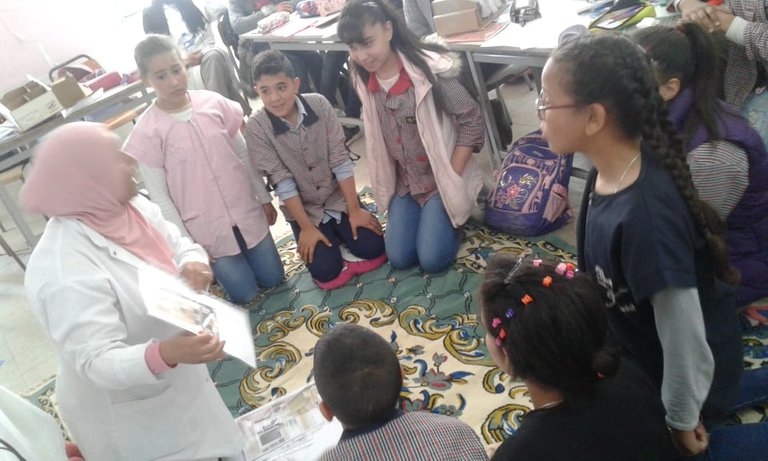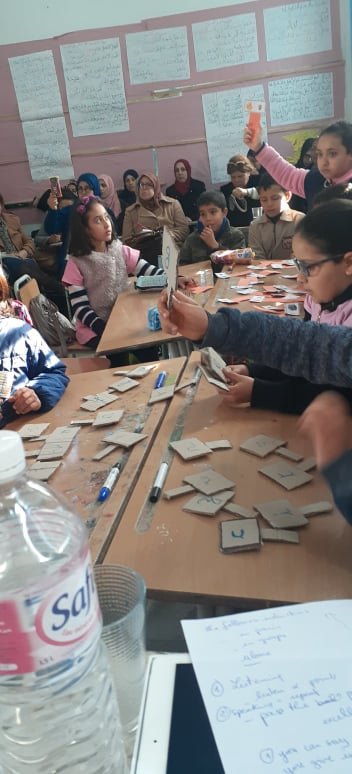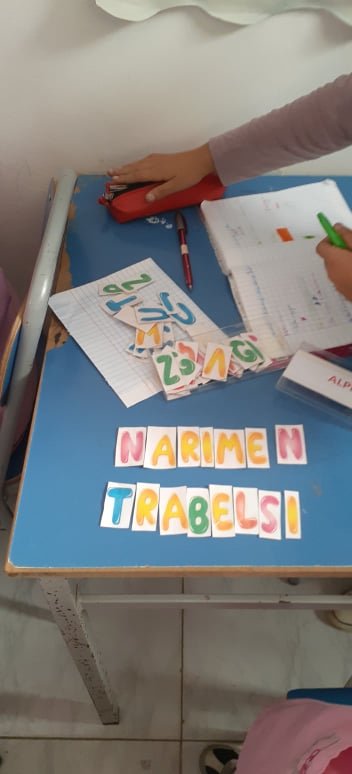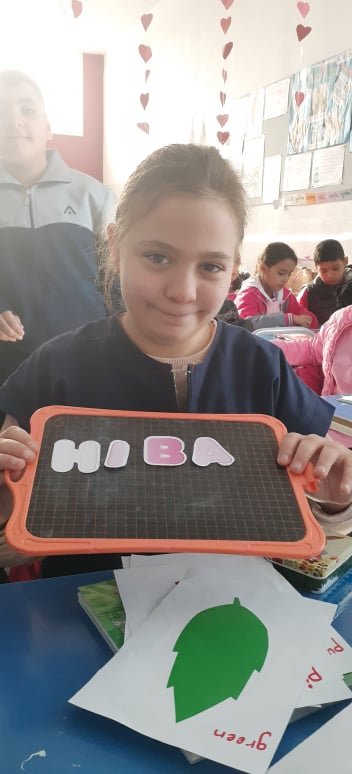Why am i writing ?
I'm a teacher advisor and i want to share with you my experience with my teachers in using games in their classrooms. Games are very important and crucial in introducing new vocabulary and in acquiring new language as well.

Photo taken from my mobile
In our primary classrooms , English is taught as a second language from the 4th grade and it's based on using games chants and rhymes with young learners . Therfore ,games are no longer just a simple relief from lessons or tasks but it is where real learning takes place .

Photo taken by me during a demo lesson
Games help students to make and sustain the effort of learning. Games provide language practice in the various skills – speaking, writing, listening and reading. They encourage students to interact and communicate. They create a meaningful context for language use.

Photo taken by me during a demo lesson
Language learning is hard work ... Effort is required at every moment and must be maintained over a long period of time. Games help and encourage many learners to sustain their interest and work.
Games also help the teacher to create contexts in which the language is useful and meaningful. The learners want to take part and in order to do so must understand what others are saying or have written, and they must speak or write in order to express their own point of view or give information.

Photo from my mobile during a demo lesson
The need for meaningfulness in language learning has been accepted for some years. A useful interpretation of 'meaningfulness' is that the learners respond to the content in a definite way. If they are amused, angered, intrigued or surprised the content is clearly meaningful to them. Thus the meaning of the language they listen to, read, speak and write will be more vividly experienced and, therefore, better remembered.

Photo taken from my mobile
Advantages of using games
There are many advantages of using games in the classroom:
- Games are a welcome break from the usual routine of the language class.
- They are motivating and challenging.
- Learning a language requires a great deal of effort. Games help students to make and sustain the effort of learning.
- Games provide language practice in the various skills- speaking, writing, listening and reading.
- They encourage students to interact and communicate.
- They create a meaningful context for language use.
When to use games
Games are often used as short warm-up activities or when there is some time left at the end of a lesson. Yet, as Lee observes, a game "should not be regarded as a marginal activity filling in odd moments when the teacher and class have nothing better to do" (1979:3). Games ought to be at the heart of teaching foreign languages. Rixon suggests that games be used at all stages of the lesson, provided that they are suitable and carefully chosen.'
Games also lend themselves well to revision exercises helping learners recall material in a pleasant, entertaining way. All authors referred to in this article agree that even if games resulted only in noise and entertained students, they are still worth paying attention to and implementing in the classroom since they motivate learners, promote communicative competence, and generate fluency.

Photo taken by me
How to Choose Games
- A game must be more than just fun.
- A game should involve "friendly" competition.
- A game should keep all of the students involved and interested.
- A game should encourage students to focus on the use of language rather than on the language itself.
- A game should give students a chance to learn, practice, or review specific language material.


General Benefits of Games
Affective:
- lowers affective filter
- encourages creative and spontaneous use of language
- promotes communicative competence
- motivates
- fun
Cognitive:
- reinforces
- reviews and extends
- focuses on grammar communicatively
Class Dynamics:
- student centered
- teacher acts only as facilitator
- builds class cohesion
- fosters whole class participation
- promotes healthy competition
Adaptability:
- easily adjusted for age, level, and interests
- utilizes all four skills
- requires minimum preparation after development
I hope that my post interrests you .Please encourage me !
That's good ..Thank you for explaining the importance of gamification in primary classrooms.
Excellent i like this post
Thanks a bunch
Tht's great ..thank you
good job thanks
thank you